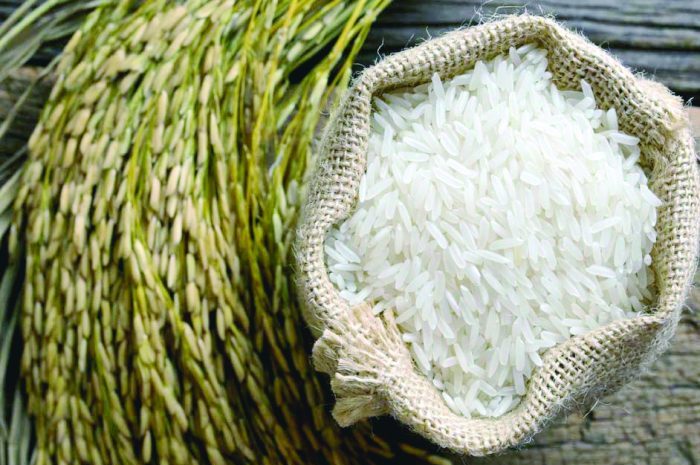A diabetes diagnosis often necessitates a reassessment of dietary habits to better manage blood sugar levels and promote overall health.
For individuals following a vegetarian lifestyle, crafting a diabetes-friendly diet may require some additional considerations to ensure adequate nutrition while effectively controlling blood sugar.
In this comprehensive guide, we’ll explore the principles of a vegetarian diabetes diet, highlight key food choices, and provide practical tips for successfully managing diabetes on a plant-based diet.
Understanding Diabetes and Vegetarianism
Diabetes is a chronic condition characterized by elevated blood sugar levels, either due to insufficient insulin production or ineffective insulin utilization by the body. While genetics and lifestyle factors play a role in diabetes risk, dietary choices can significantly impact blood sugar control and disease management.
A vegetarian diet excludes meat, poultry, and seafood, and may or may not include other animal products such as dairy, eggs, and honey. Vegetarianism is associated with numerous health benefits, including lower risk of heart disease, obesity, and certain cancers.
However, individuals following a vegetarian diet may face unique challenges in meeting their nutritional needs, particularly regarding protein, vitamin B12, iron, calcium, and omega-3 fatty acids.
Principles of a Vegetarian Diabetes Diet
1. Emphasize Whole, Plant-Based Foods:
Base your meals around nutrient-rich, whole foods such as fruits, vegetables, whole grains, legumes, nuts, and seeds. These foods are naturally low in saturated fat and cholesterol and high in fiber, vitamins, minerals, and antioxidants, making them ideal for blood sugar control and overall health.
2. Monitor Carbohydrate Intake:
Pay attention to the carbohydrate content of your meals, as carbohydrates have the most significant impact on blood sugar levels.
Choose complex carbohydrates with a low glycemic index (GI), such as whole grains, legumes, and non-starchy vegetables, which are digested more slowly and have a gentler effect on blood sugar.
3. Include Adequate Protein:
Ensure adequate protein intake by incorporating plant-based sources such as legumes (beans, lentils, chickpeas), tofu, tempeh, edamame, nuts, seeds, and soy products.
Protein plays a crucial role in blood sugar regulation, satiety, and muscle maintenance, making it an essential component of a diabetes-friendly diet.
4. Focus on Healthy Fats:
Choose sources of healthy fats, such as avocados, nuts, seeds, and olive oil, which can help improve insulin sensitivity and reduce inflammation.
Limit intake of saturated and trans fats found in processed foods, fried foods, and high-fat dairy products, as these can contribute to insulin resistance and cardiovascular disease risk.
5. Be Mindful of Portion Sizes:
Pay attention to portion sizes to avoid overeating, which can lead to spikes in blood sugar levels.
Use measuring cups, spoons, or visual cues to estimate appropriate portion sizes, and aim to fill half your plate with non-starchy vegetables, one-quarter with whole grains or starchy vegetables, and one-quarter with protein-rich foods.
Key Food Choices for a Vegetarian Diabetes Diet
1. Non-Starchy Vegetables:
Include a variety of colorful vegetables such as leafy greens, broccoli, cauliflower, bell peppers, carrots, cucumbers, and tomatoes. These vegetables are low in calories and carbohydrates but high in fiber, vitamins, and minerals, making them an excellent choice for blood sugar control.
2. Whole Grains:
Choose whole grains such as quinoa, brown rice, barley, oats, bulgur, and whole wheat pasta, which are rich in fiber and nutrients and have a lower GI compared to refined grains. Whole grains can help stabilize blood sugar levels and promote satiety.
3. Legumes:
Incorporate beans, lentils, chickpeas, and other legumes into your meals regularly. Legumes are rich in protein, fiber, vitamins, and minerals, and have a low GI, making them an ideal choice for blood sugar management.
4. Plant-Based Proteins:
Opt for plant-based protein sources such as tofu, tempeh, edamame, seitan, and plant-based protein powders. These foods are rich in protein and contain no cholesterol, making them heart-healthy alternatives to animal-based proteins.
5. Healthy Fats:
Include sources of healthy fats such as avocados, nuts, seeds, and olive oil in your diet. These fats can help improve insulin sensitivity and reduce the risk of heart disease, which is common in individuals with diabetes.
Practical Tips for Success
1. Plan Balanced Meals:
Plan your meals ahead of time to ensure they include a balance of carbohydrates, protein, and healthy fats. Experiment with new recipes and ingredients to keep your meals exciting and flavorful.
2. Monitor Blood Sugar Levels:
Regularly monitor your blood sugar levels using a glucometer to track how different foods and meals affect your blood sugar. Work with your healthcare team to establish target blood sugar ranges and adjust your diet and medication as needed.
3. Stay Hydrated:
Drink plenty of water throughout the day to stay hydrated and support optimal blood sugar control. Limit sugary beverages such as soda, fruit juice, and sweetened teas, as they can cause spikes in blood sugar levels.
4. Be Physically Active:
Incorporate regular physical activity into your routine, as exercise can help improve insulin sensitivity and lower blood sugar levels. Aim for at least 150 minutes of moderate-intensity aerobic activity per week, along with muscle-strengthening exercises on two or more days per week.
5. Seek Support:
Join a diabetes support group or seek guidance from a registered dietitian or diabetes educator who specializes in vegetarian nutrition. Connecting with others who share similar dietary goals and challenges can provide valuable encouragement and support.
Conclusion:
In conclusion, a vegetarian diabetes diet can be a nutritious and effective way to manage blood sugar levels and promote overall health. By focusing on whole, plant-based foods, monitoring carbohydrate intake, and making mindful food choices, individuals with diabetes can enjoy a diverse and satisfying diet that supports their nutritional needs and wellness goals.
With proper planning, education, and support, adopting a vegetarian diabetes diet can be a sustainable and enjoyable lifestyle choice for long-term diabetes management.

























